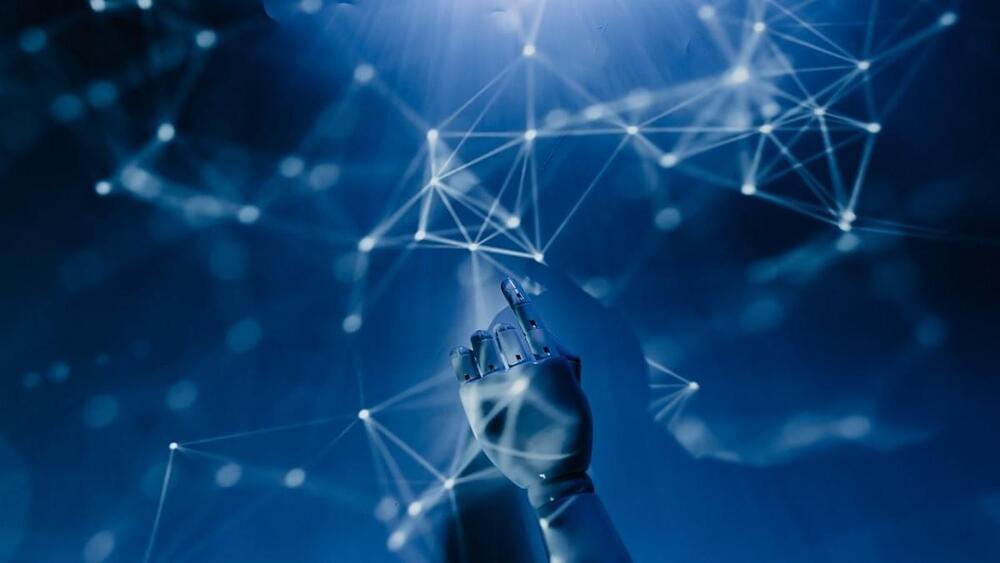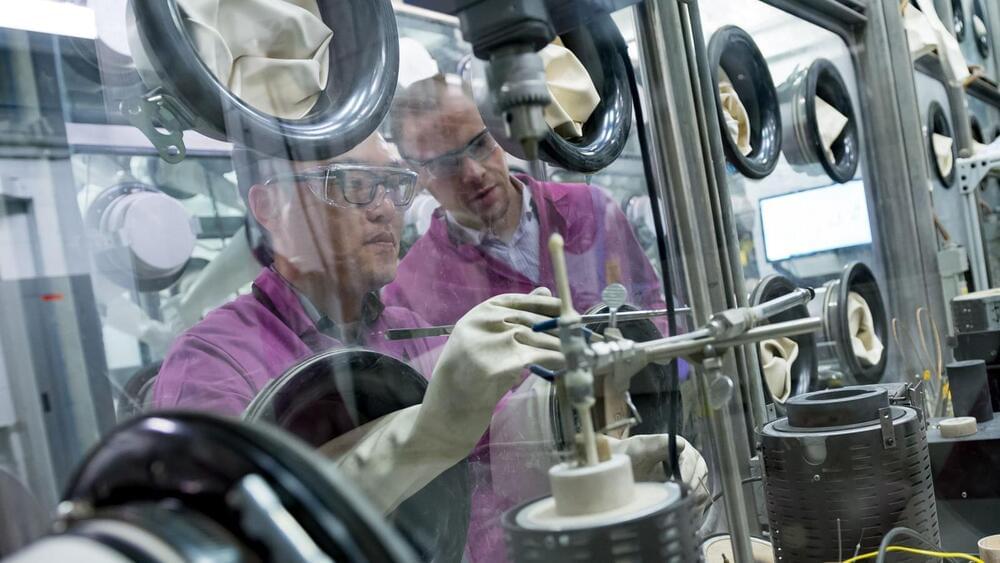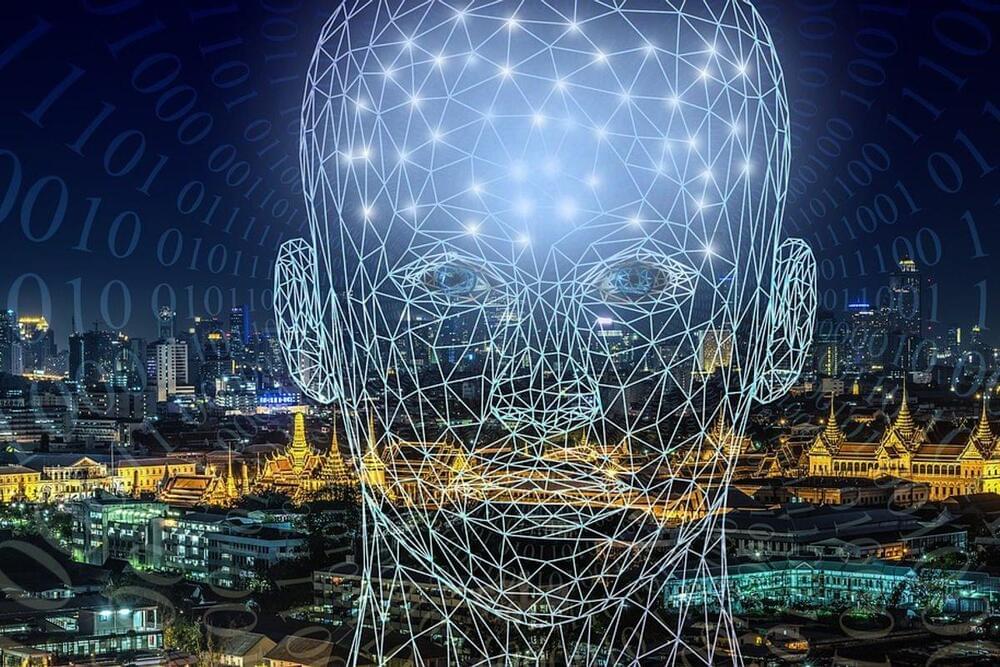A pair of harvesting robots are picking raspberries in Portugal, demonstrating the ability of tech to help combat seasonal labor shortages.
Category: robotics/AI – Page 1,474

NVIDIA’s Revolutionary AI CREATES Text to 3D models in minutes!
You can now create high resolution 3D mesh models from text in just minutes using Magic3D, an amazing new AI!
Follow Me or AI will not be your friend!
• Facebook — https://www.facebook.com/beyondengineering7
• Twitter — https://twitter.com/foad190
• LinkedIn — https://www.linkedin.com/in/foadmunir/
Audio:
Instant Crush — Corbyn Kites.
Wolf Moon — Unicorn Heads.
Sources:
The Future of Transportation
The transportation system in the future will be very different from our current system. We will see flying cars, self-driving cars, passenger drones, hyperloop one system that is projected to reach a top speed of 760 mph (1,220 km/h) and with Starship and the Super Heavy Rocket, most journeys will taking less than 30 minutes, with access to anywhere in the world in an hour or less.
Starship-Super Heavy Earth to Earth :
With Starship and the Super Heavy Rocket, most of what people consider to be long distance trips would be completed in less than half an hour. In addition to vastly increased speed, one great benefit about traveling in space, outside of Earth’s atmosphere, is the lack of friction as well as turbulence and weather. Consider how much time we currently spend traveling from one place to another. Now imagine most journeys taking less than 30 minutes, with access to anywhere in the world in an hour or less. It’s designed to service all Earth orbit needs as well as the Moon and Mars. This two-stage vehicle—composed of the Super Heavy Rocket (booster) and Starship (ship).
Hyperloop One :
The Hyperloop is a new mode of transportation that moves freight and people quickly, safely, on-demand and direct from origin to destination. Passengers or cargo are loaded into the hyperloop vehicle and accelerate gradually via electric propulsion through a low-pressure tube. The vehicle floats above the track using magnetic levitation and glides at airline speeds for long distances due to ultra-low aerodynamic drag. Hyperloop One systems will be built on columns or tunneled below ground to avoid dangerous grade crossings and wildlife. It’s fully autonomous and enclosed, eliminating pilot error and weather hazards.
Underground Tunnels Transportation :
To solve the problem of soul-destroying traffic, roads must go 3D, which means either flying cars or tunnels. Unlike flying cars, tunnels are weatherproof, out of sight and won’t fall on your head. A large network of tunnels many levels deep would fix congestion in any city, no matter how large it grew (just keep adding levels). Fast to dig, low cost tunnels would also make Hyperloop adoption viable and enable rapid transit across densely populated regions, enabling travel from New York to Washington DC in less than 30 minutes.
Pop. Up Next :
At the heart of the Pop. Up Next concept is a simple two-seat passenger cabin that can travel one of two ways. The simpler and more conventional route involves attaching to a 60-kW (80-hp) electric powered sled and assuming the role of a self-driving car. Top speed is listed at 100 km/h (62 mph) and it would rely on a 15-kWh battery for a 130-km (81-mi) range. Pop. Up’s modus operandi is simple: passengers plan their journey and book their trip via an easy-to-use app. The system automatically suggests the best transport solution — according to user knowledge, timing, traffic congestion, costs, ridesharing demands — joining either the air or ground module or other means of transportation to the passenger capsule, and following passengers’ preferences and needs.
The World by 2100
What will the Future look like? Will Elon Musk and SpaceX make the Mars landing? In this video, we go over our Future World by 2100. For more Tech and Future content be sure to subscribe to Tech World! Thanks for watching this video: The World by 2100
Check Out These Videos:
1 Trillion Years into the Future.
https://youtu.be/R12DMYoYWFw.
How Elon Musk’s Neuralink is Changing the World.
Why is SpaceX Building the Starship?
https://youtu.be/gYgbnf3Ni5g.
#Tech #Future #ElonMusk.
0:00 Intro.
The World In 2050
A short video of our world in 2050.
The World In 2050 will be totally different.
You will see how our cities will look like.
Robots, flying cars, self-driving cars, super tall skyscrapers, space exploration and many more will happen in our future.
technology and science are evolving very fast.
Enjoy this short science fiction video.
Une petite video sur le future.
-~-~~-~~~-~~-~
Please watch: “Kuala Lumpur incredible transformation and its future“
-~-~~-~~~-~~-~
Nikola Tesla Secret Inventions That Were Lost or Censored
Go to https://www.ExpressVPN.com/UniverseInsideYou and find out how you can get 3 months free.
Watch our Nikola Tesla playlist with many interesting videos on Tesla: https://bit.ly/3DNdl65
While there is still much mystery surrounding the life and death of Nikola Tesla, perhaps the most intriguing of mysteries lay in his inventions that never fully saw the light of day. Inventions such as the Death Ray, the Earthquake machine, his flying vehicles, and much more. With the intellect and creative prowess he possessed, we can only begin to imagine the thoughts and ideas he had but never shared.
What we do have, is a small fraction, a record of the incredible inventions that he either discussed, began building, or had actual working prototypes. These were never fully developed or deployed, at least not to the public knowledge, but had the potential to be world-changing… some for better and some for worse… Narration: Petra Ortiz — http://petraortiz.com Scences from History Channel were used under Fair Use. Help my channel here: https://www.patreon.com/universeinsid… here: http://bit.ly/2COJqdM T-Shirts: https://teespring.com/stores/universe… All lost robot-voiced videos can be found here: https://subscribestar.com/universe-in… 💜 Subscribe and like if you enjoyed the video. Thank you 💜 Join us on: 🌺 Instagram: https://www.instagram.com/universe.in… 🌺 Facebook: https://www.facebook.com/universalloving 🌺 Twitter: https://twitter.com/universeinsideu For Spanish narrated videos, visit my Spanish channel: https://youtube.com/watch?v=TXG5GXHaMqk&feature=share You can also help by translating or adding CC to the videos: https://www.youtube.com/timedtext_cs_p… #universeinsideyou #nikolatesla.
Narration: Petra Ortiz — http://petraortiz.com.
Scences from History Channel were used under Fair Use.
Help my channel here: https://www.patreon.com/universeinsideyou.

Hot salt, clean energy: How artificial intelligence can enhance advanced nuclear reactors
Technology developed at Argonne can help narrow the field of candidates for molten salts, a new study demonstrates.
Scientists are searching for new materials to advance the next generation of nuclear power plants. In a recent study, researchers at the U.S. Department of Energy’s (DOE) Argonne National Laboratory showed how artificial intelligence could help pinpoint the right types of molten salts, a key component for advanced nuclear reactors.
The ability to absorb and store heat makes molten salt important to clean energy and national climate goals. Molten salts can serve as both coolant and fuel in nuclear power reactors that generate electricity without emitting greenhouse gases. They can also store large amounts of energy, which is increasingly needed on an electric grid with fluctuating sources such as wind and solar power.

FUTURE OF ARTIFICIAL INTELLIGENCE (2030 — 10,000 A.D.+)
This video explores the timelapse of artificial intelligence from 2030 to 10,000A.D.+. Watch this next video about Super Intelligent AI and why it will be unstoppable: https://youtu.be/xPvo9YYHTjE
► Support This Channel: https://www.patreon.com/futurebusinesstech.
► Udacity: Up To 75% Off All Courses (Biggest Discount Ever): https://bit.ly/3j9pIRZ
► Brilliant: Learn Science And Math Interactively (20% Off): https://bit.ly/3HAznLL
► Jasper AI: Write 5x Faster With Artificial Intelligence: https://bit.ly/3MIPSYp.
SOURCES:
• https://www.futuretimeline.net.
• The Singularity Is Near: When Humans Transcend Biology (Ray Kurzweil): https://amzn.to/3ftOhXI
• The Future of Humanity (Michio Kaku): https://amzn.to/3Gz8ffA
• Physics of the Future (Michio Kaku): https://amzn.to/33NP7f7
• Physics of the Impossible (Michio Kaku): https://amzn.to/3wSBR4D
• AI 2041: 10 Visions of Our Future (Kai-Fu Lee & Chen Qiufan): https://amzn.to/3bxWat6
Official Discord Server: https://discord.gg/R8cYEWpCzK
💡 Future Business Tech explores the future of technology and the world.
Examples of topics I cover include:
• Artificial Intelligence.
• Genetic Engineering.
• Virtual and Augmented Reality.
• Space Exploration.
• Science Fiction.
SUBSCRIBE: https://bit.ly/3geLDGO